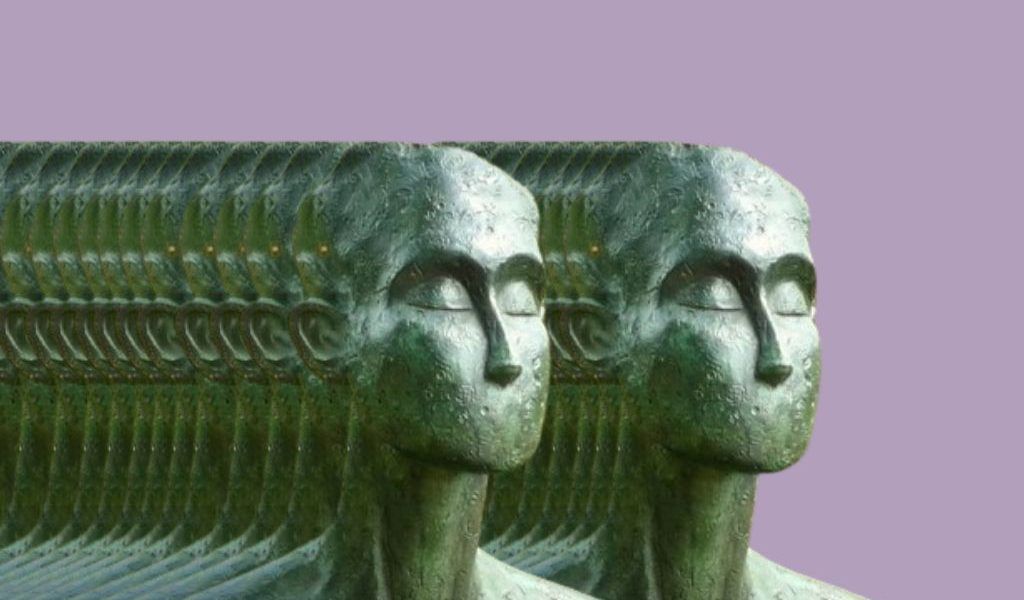
A democracy is a government based on conversation, on ideas, arguments and decisions made after discussion. At no time is this more evident than during elections, when various parties and politicians publicly argue their case and ask the electorate to support them. However, the current elections in India are filled with huge loopholes.
There are great silences that no one seems to want to disturb.
At least 4.9 million Indians will not vote in this election. This is not because of voter suppression or any error by our Selection Commission – apologies, Election Commission – but because they are dead. This is the number that most, including the Narendra Modi government’s former economic advisor Arvind Subramanian, estimate died during the pandemic. That is approximately 9,000 people per constituency who will elect a Member of Parliament for the next Lok Sabha. Chances are some would have been too young to vote in this election anyway, but now they never will.
We don’t talk about the dead that piled up around us while the government went into hiding, its only contribution being to ban photography of the constant burning pyres or stealing shrouds from corpses along the Ganges. We are not talking about the largest forced migration since Partition. We are not talking about the millions of workers, disconnected from work, forgotten by an insensitive government that ordered a national lockdown in four hours and without preparation, leaving people with nothing to live on. We are not talking about the trains that ran over exhausted migrants, unwanted in their own country, while they slept on the train tracks.
More than two years after the enormous self-inflicted wound that was our response to the pandemic, there is no real change. Our health spending remains deplorable and there have been no changes in our economic structure. We still depend on exploiting labor displaced by economic necessity or natural tragedy, we chew it up and spit it out. In the next pandemic, we will probably treat them like we did last time: brutally and without a shred of empathy or compassion.
Nor do we talk about that other sudden shutdown, in Kashmir, when we decided to strip away the last vestiges of anything resembling democracy, or our own legitimacy, in a ridiculous farce, and simultaneously shut down all communication across the valley of Cashmere. Even now, so many years later, with so many claims of “normality” and “development” and all the other useless buzzwords, the government is so afraid of reality that not a single foreign journalist has been allowed to report from there.
But then Kashmir has been an old wound, that is where our liberalism, our democracy and any pretense of decency are going to die. We don’t talk about it, and our silence is the most obvious accusation of our complicity and lack of moral will. For a nation that prides itself on having won its freedom through satyagraha, through the strength of truth, all we have is strength, and the truth is not welcome.
And now we have a new wound to ignore, the brewing war situation fomented and supported in Manipur, with thousands and thousands of displaced people, murders and rapes, and an entire state divided along communal lines. More than a year has passed and, like the injustices and horrors we have ignored in Kashmir, as the days go by, we pay less attention to it, as if a wound will heal on its own, as if silence is something more What tacit approval of what is cruel and murderous.
We have become comfortable ignoring these things, we have trained ourselves to look the other way in the face of lynchings, murders, and calls for genocide. Like two of Gandhi’s monkeys, we see no evil and hear no evil, and in a wonderful evolution of the third, we never, ever speak against evil. In a remarkable transformation after more than 75 years of independence, we have become the most docile of colonized subjects, unable or unwilling to even tell the truth, much less fight for it.
In the end, who wins this election – or is crowned in this selection – matters little. A king or queen is just a fool with a scepter, as we proved to the British long ago. What matters is the people, and I fear that we have become a people in which all we have to offer in the face of the greatest atrocities, in the face of the death of millions, is only silence.
Note: this is an article republished from “The Wire” through a cooperation agreement between both parties for the dissemination of journalistic content. Original link.
Omair Ahmad is South Asia Editor-in-Chief at The Third Pole. He has worked as a political analyst and journalist, with special attention to the Himalayan region. He is the author of a political history of Bhutan and some novels.
Source: https://reporteasia.com/opinion/2024/06/03/elecciones-de-silencio/

